Indonesia, Bali, foot and mouth disease: AgForce, Nationals MPs react to Federal Government biosecurity measures
‘Scary stuff’: Cattle farmers and agriculture sector raise alarm bells as government introduce new measures to prevent arrival of foot and mouth disease in Australia. See why the Nationals say the measures don’t go far enough.

Business
Don't miss out on the headlines from Business. Followed categories will be added to My News.
Nationals MPs have slammed the government’s response to the potential arrival of foot and mouth disease in Australia as peak agriculture groups urge landholders to ‘stay alert’ and graziers grow nervous.
Farmers across Queensland are anxiously awaiting more advice as the arrival of the livestock disease in Bali this week has heightened concerns about FMD’s potentially devastating impact on the cattle industry.
AgForce has recommended livestock properties to tighten biosecurity measures and assess the risk of visitors, particularly those from overseas.
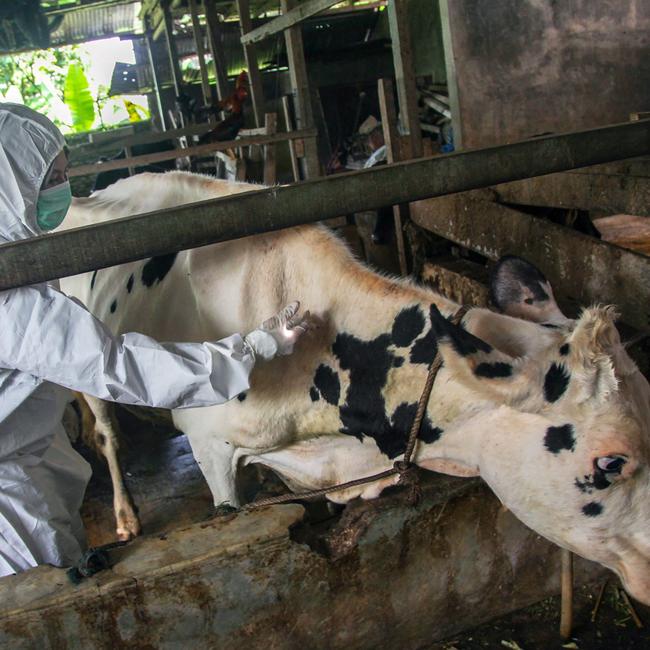
AgForce Queensland CEO Michael Guerin said the organisation had finalised its position to better prepare for such an event and said the risk of the disease arriving on Australian shores was “very real”.
“With the potential for such widespread devastation, AgForce is warning members to stay alert and watch for signs of this disease,” Mr Guerin said.
MCC Pastoral director Ian McCamley oversees cattle properties near Rolleston, south of Emerald, and said while graziers have had the threat of FMD on their radar for sometime, news of its spread through Indonesia had raised alarm bells.
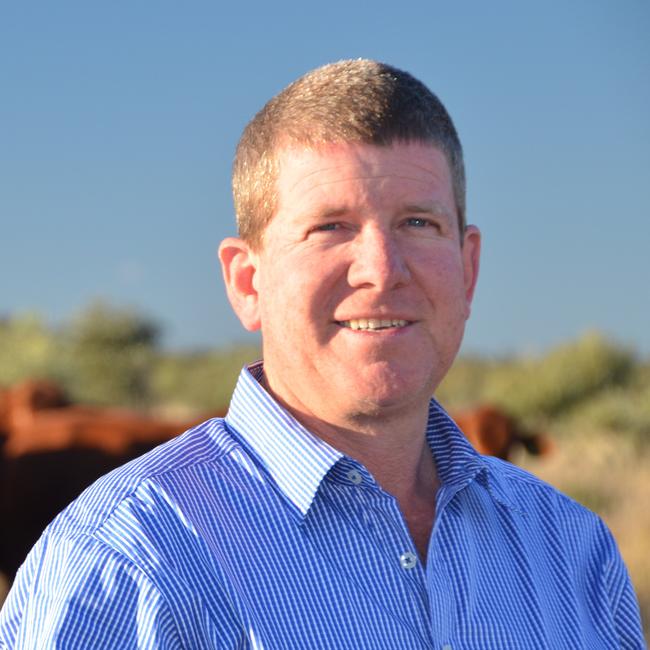
“We need to all work together on this because everyone will be affected, this is as much an industrial issue as an animal welfare issue and I just hope politicians can be constructive and implement the appropriate measures,” Mr McCamley said.
“It’s important all Australians understand what this is and its impact, because whatever happens in rural areas does impact the urban centres and holy smokes if this things gets in here it’s scary stuff,” he said.
Mr McCamley applauded the new government measures and said people in the industry must be diligent and “screw down” quarantine measures as tight as possible.
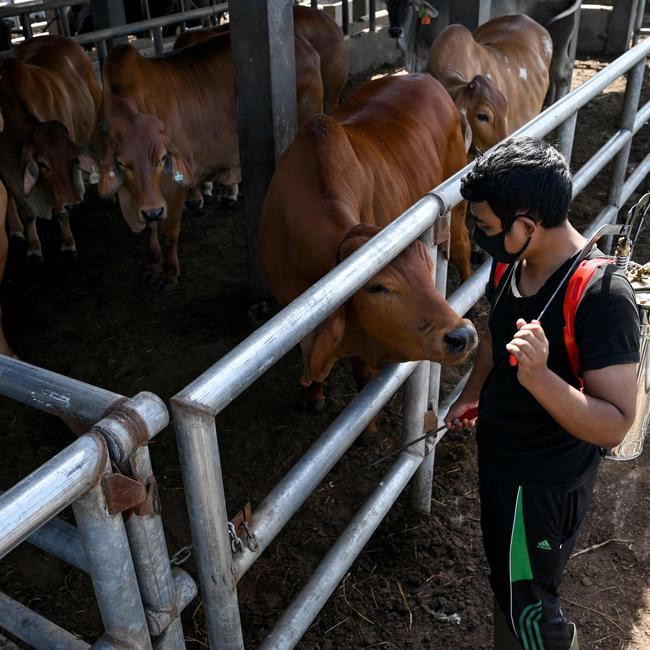
He also warned the economic impact of FMD would be so significant it would be impossible to compensate farmers or prop-up the industry.
“I think you would see a wild situation where graziers actually hope they get it first to have any chance of proper compensation before the industry collapses,” he said.
It comes as Nationals MPs slammed the government’s current measures to combat the arrival of the FMD, labelling its approach “inadequate” and suggesting it was leaving the industry vulnerable to an outbreak.
Flynn MP Colin Boyce said Australia must act now to prevent the highly contagious disease from arriving and called upon the government to consider banning all non-essential travel from Indonesia, including Bali, immediately.
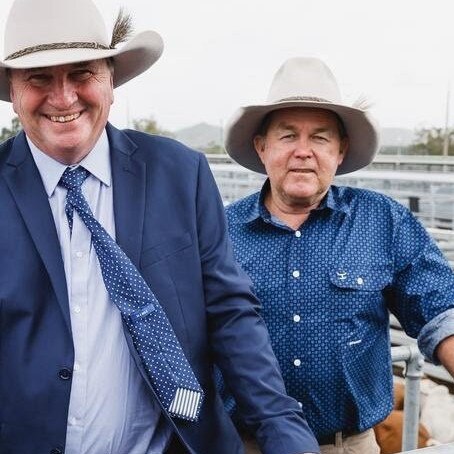
“We need to explore the possibility suspending all but essential travel to Indonesia including to Bali, the same protocol that was implemented to contain the spread of COVID-19,” Mr Boyce said.
“If foot-and-mouth disease reaches Australian shores, it will devastate the agricultural industry, associated industries and cost the Australian economy tens of billions of dollars,” he said.
Mr Boyce said FMD’s arrival in Australia would be far more devastating than when it hit the UK in 2001 and resulted in the destruction of more than six millions pigs, cows, and sheep, and cost the economy about $14b AUD (£8b).
Following a briefing from the Department of Agriculture, Nationals leader David Littleproud said the new protocols didn’t go far enough and called on the government to introduce disinfectant foot baths at airports.
“ (FMD) is a disease that could cost the nation almost as much as JobKeeper,” Mr Littleproud said.
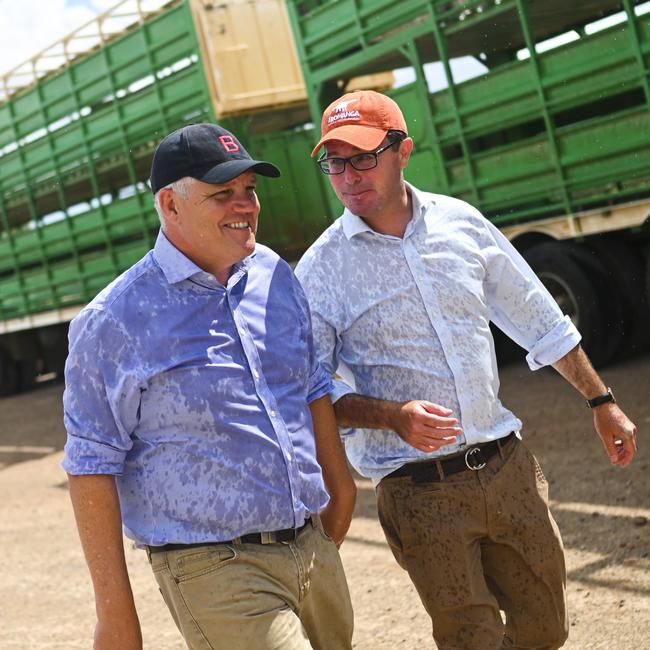
“The government has conceded that their proposal to increase the number of sniffer dogs at airports with incoming Indonesian flights cannot actually directly detect FMD if attached on boots.
“There also remains a number of passengers who falsely declare or don’t declare all of their movements while in Indonesia.”
The government has introduced new measures to prevent and detect the disease beginning this week, including having biosecurity officers on all arriving flights from Indonesia with new messaging for all passengers warning about FMD’s impact.
Federal Agriculture Minister Murray Watt said the Labor Government was taking firm action and had ramped up tough biosecurity measures at the border, acknowledging the “very serious threat”.
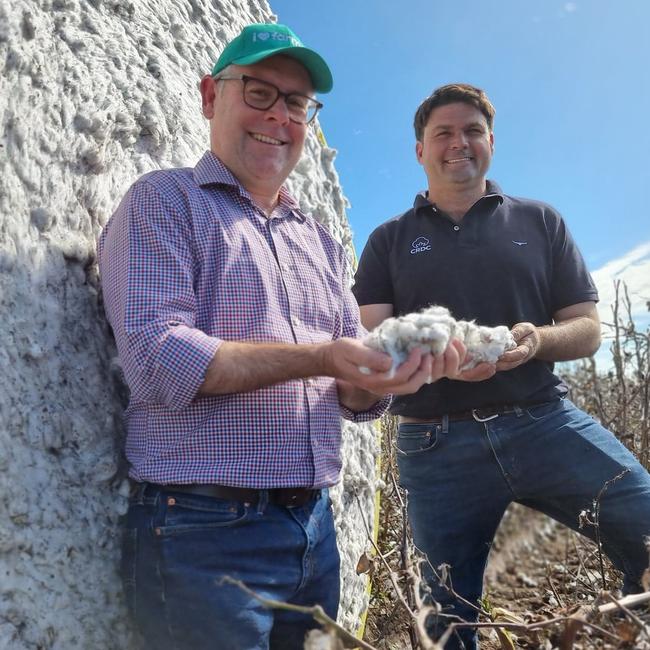
Other measures include detector dogs at the Darwin and Cairns airports, additional signage and flyers at major airports, designated training of airport biosecurity staff, and expanded social media campaigns.
“We’ve got to keep our relationship with Indonesia strong for trade, national security and other reasons,” Mr Watt said.
“Travellers regularly return to Australia from other countries that are affected by FMD,” he said.
On Wednesday, the Agriculture Minister spoke to ABC Brisbane and clarified his position on questions surrounding the potential introduction of policies such as foot baths.
“The advice given to me is that foot baths aren’t a particularly effective biosecurity tool partly because people are likely to have multiple pairs of shoes they’ve had with them while they’ve been away,” Mr Watt said.
“The reality is that with a place like Indonesia there’s a lot of people who come back in wearing thongs or open footwear and the chemicals that are in foot baths are actually pretty damaging to human skin … but I’m asking questions about other solutions such as disinfectant mats” he said.
Figures from the Department of Foreign Affairs and Trade from 2020 indicate the value of goods and services trade between the two nations is more than $12.8b.
AgForce also encouraged producers to watch the State Government’s new eHub which tracks the progression of foot and mouth towards Australian borders.




